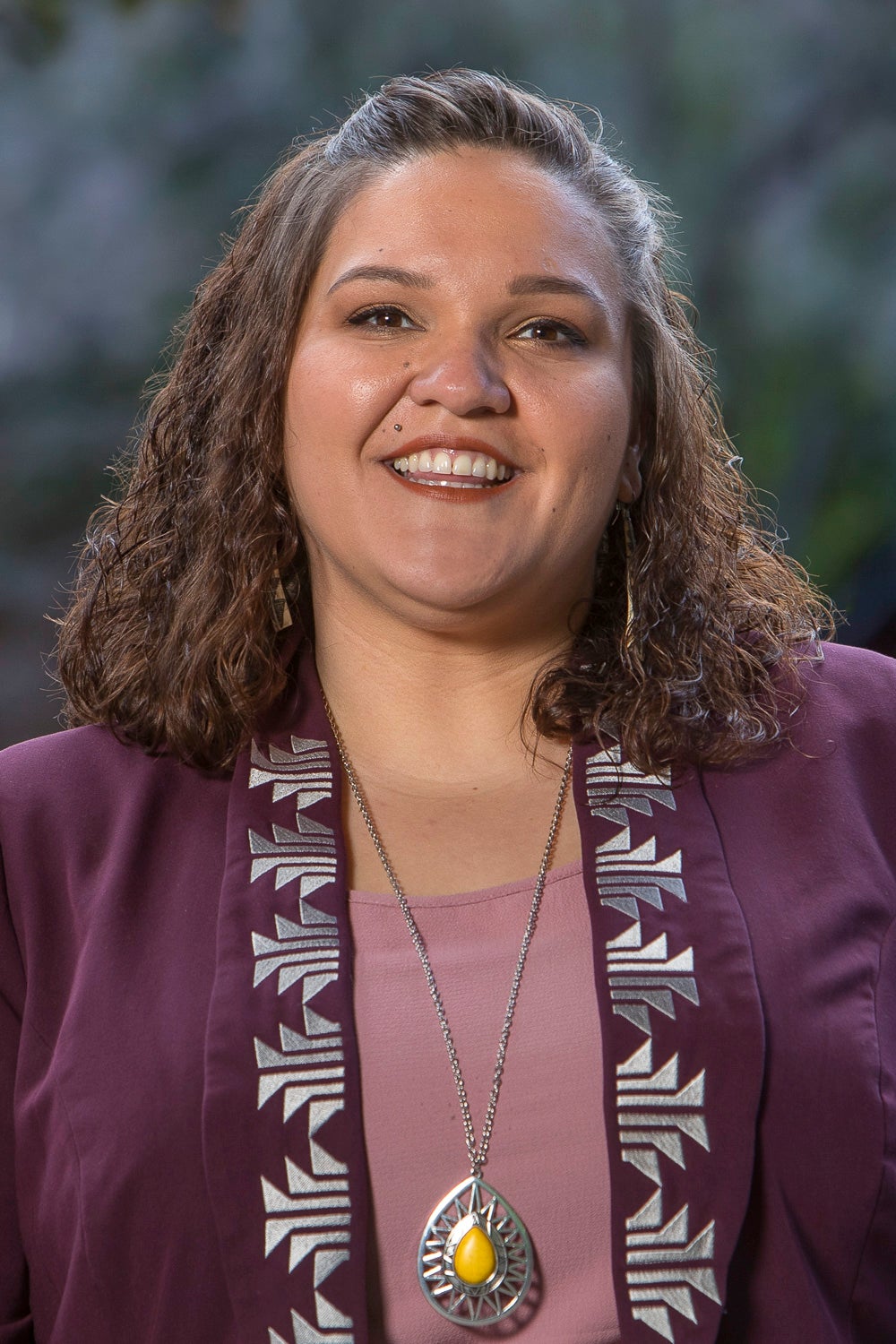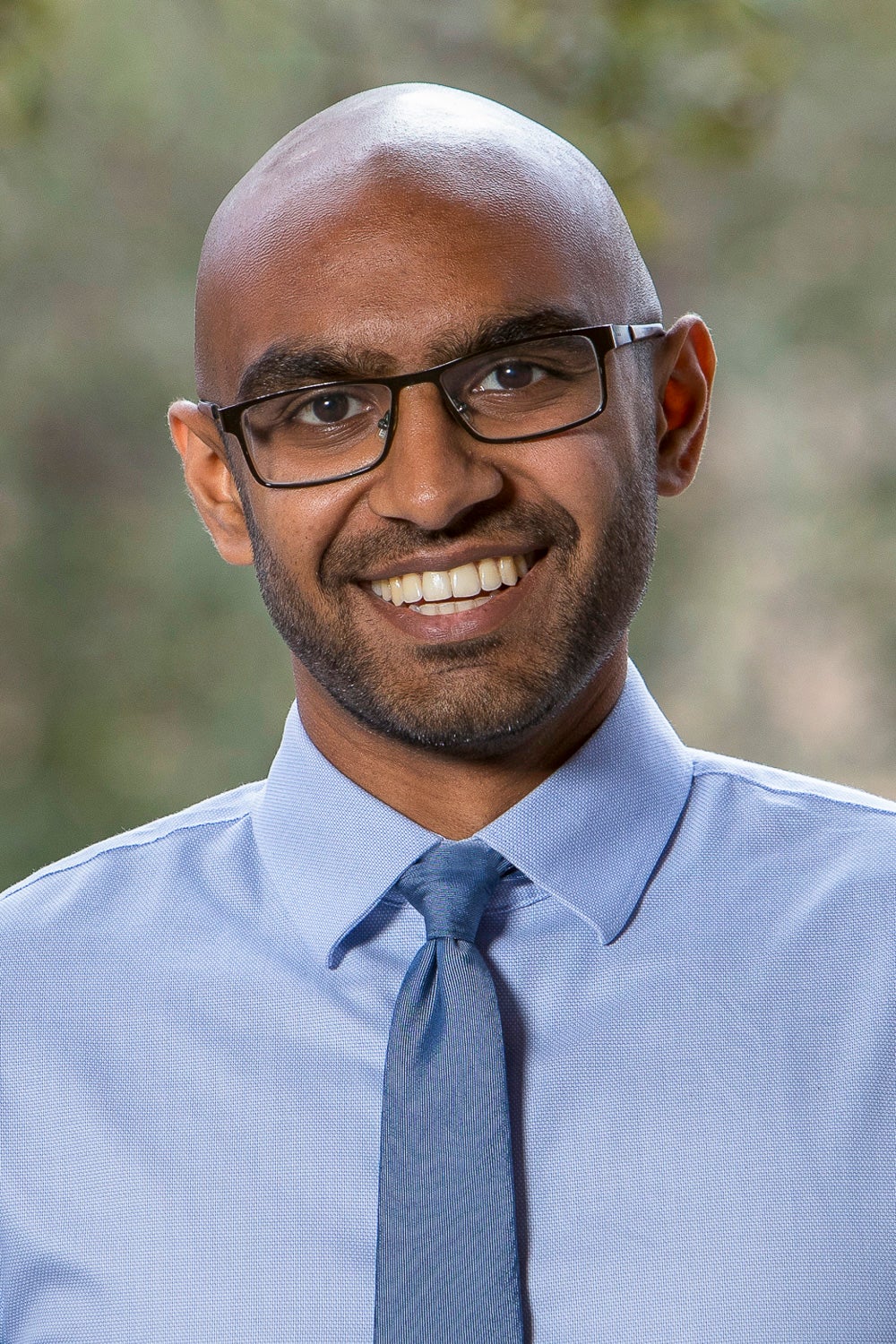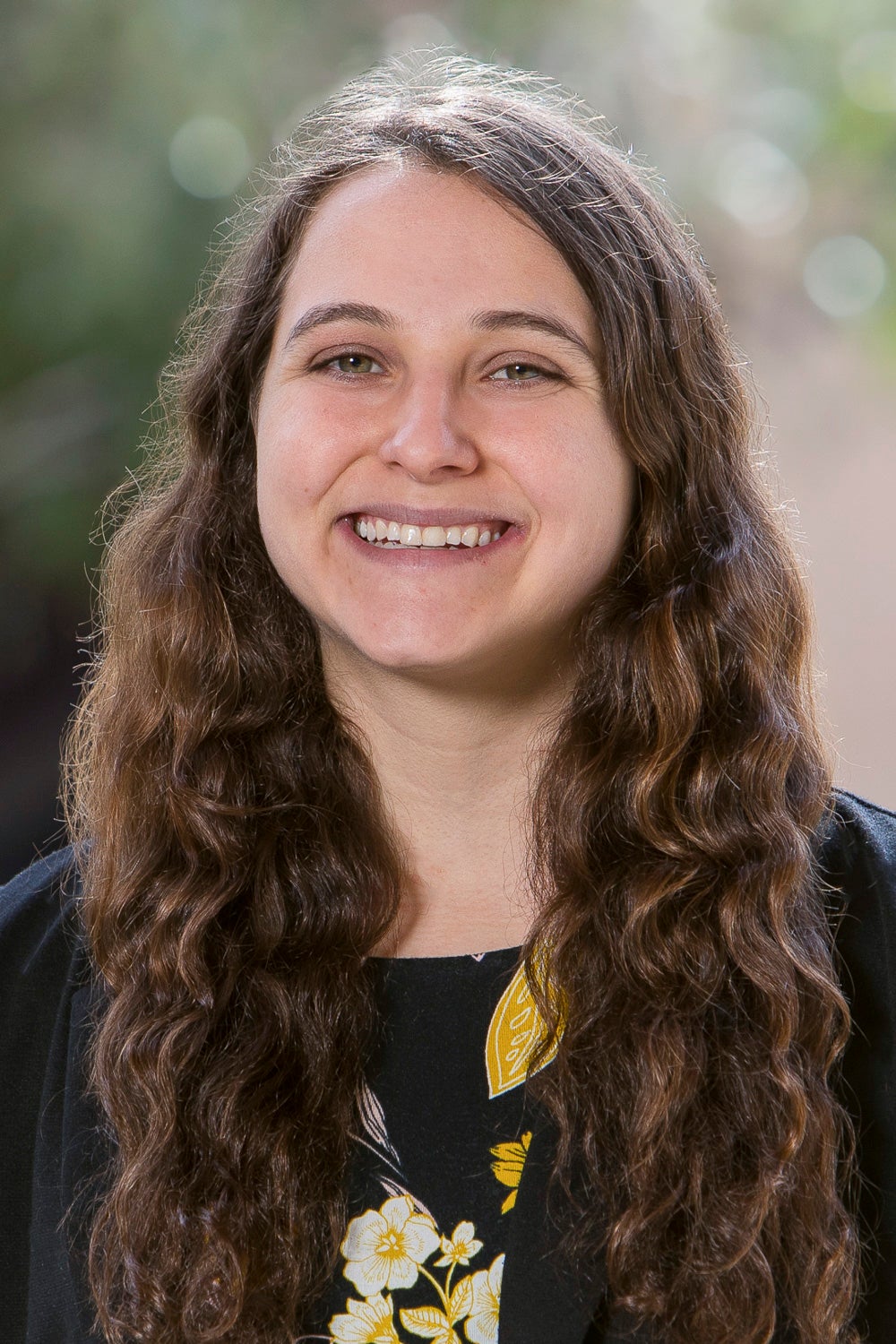The 2019 cohort of Knight-Hennessy Scholars includes five people with Stanford affiliations who will pursue graduate degrees at Stanford Graduate School of Business and Stanford School of Medicine.
The scholars with Stanford affiliations include one senior, one coterminal student and three alumni. They are among the 69 scholars, including citizens from 20 countries, announced as 2019 Knight-Hennessy Scholars. The final cohort profile will be available after May 1.
The Knight-Hennessy Scholars program aims to develop an interdisciplinary community of future global leaders to address the world’s most complex challenges through collaboration and innovation.
The Knight-Hennessy Scholars with Stanford affiliations are Melissa Eidman, Taylor Harris, Dan Knapp, Anoop Manjunath and Courtney Smith.

Melissa Eidman (Image credit: Courtesy Knight-Hennessy Scholars)
Melissa Eidman, a member of the Yurok Tribe, earned a bachelor’s degree in human biology with honors at Stanford in 2017 and will pursue an MD at Stanford School of Medicine.
Eidman, of Sacramento, California, transferred to Stanford from Sacramento City College in 2014.
At Stanford, Eidman worked for the Native American Cultural Center, which helps new students adjust to life on campus, achieve their goals and prepare for the future. She also served as co-chair of the Stanford Powwow, an annual event held during Mother’s Day Weekend in the Eucalyptus Grove.
In 2017, Eidman received the Kenworthy Award for Student Innovation in Public Service from the Haas Center for Public Service at Stanford. She won a 2017 Firestone Medal for Excellence in Undergraduate Research for her honors project, “Still Reservations: Examining Barriers to Health and Health-Seeking Behavior on the Yurok Reservation.”
After winning a 2017-18 John Gardner Public Service Fellowship from the Haas Center, Eidman spent 10 months working at the Sacramento Native American Health Center and the California Consortium for Urban Indian Health. Since April 2018, she has served as the coordinator of the consortium’s medication assisted treatment program, which is working to decrease the number of opioid overdose deaths in Indian Country.
Eidman aspires to improve the health and health care of indigenous peoples across the nation and around the globe.

Taylor Harris (Image credit: Courtesy Knight-Hennessy Scholars)
Taylor Harris, of Des Moines, Washington, who earned a bachelor’s degree in biomechanical engineering at Stanford in 2018, will pursue an MD at Stanford School of Medicine.
Harris is first author of “The Shrinking Brain: Cerebral Atrophy Following Traumatic Brain Injury,” published in October 2018 by Annals of Biomedical Engineering.
At Stanford, Harris received a 2017-18 Frederick E. Terman Engineering Scholastic Award and a Stanford STEM Fellow Award, and was elected as a member of Tau Beta Pi, the engineering honor society. She served as an undergraduate researcher in the Bertozzi Group, which studies cell surface interactions that contribute to human health and disease with specific projects in the areas of cancer, inflammation and bacterial infection.
As a varsity member of the Stanford Women’s Lightweight Rowing team, Harris won four national championships. She served as a volunteer at Lucile Packard Children’s Hospital at Stanford, and at Child Family Health International in Ecuador and Mexico. In addition, she served as an analyst intern at a health care consulting firm, where her work included projects involving orphan diseases and personalized medicine.
Her passion for cutting-edge technologies in cancer treatment guides her aspirations to pursue oncology and bioinformatics, and to help make relevant technologies available to underserved minority populations.

Dan Knapp (Image credit: Courtesy Knight-Hennessy Scholars)
Dan Knapp, of Morristown, New Jersey, earned a bachelor’s degree in science, technology, and society, with a minor in African studies, at Stanford in 2015. He will pursue a Master of Business Administration degree at Stanford Graduate School of Business.
At Stanford, Knapp was elected to Phi Beta Kappa, a national academic honor society recognizing students for the excellence and breadth of their undergraduate scholarly accomplishments.
Knapp received several awards honoring his work as Junior Class President and as director of the 2015 Stanford Dance Marathon, which raised more than $125,000 for Partners in Health Rwanda. As a senior, Knapp received the J.E. Wallace Sterling Award, which is presented annually by the Stanford Alumni Association to a senior whose undergraduate leadership and volunteer activities have made the largest impact on the Stanford community. Knapp was also inducted into the Public Service Honor Society by the Haas Center for Public Service in 2015.
Knapp, who joined Google in 2015, currently leads product marketing campaigns for the company’s video-sharing website, YouTube, in Singapore. His campaigns have focused on a variety of issues, including LGBTQ+ rights, gender equality, the refugee crisis and civic engagement in elections. For example, on International Women’s Day in 2016, he helped on a campaign with the United Nations that encouraged young girls to fight and overcome adversity.
Knapp aspires to be a cross-discipline business leader, working with social enterprises and community organizations.

Anoop Manjunath (Image credit: Courtesy Knight-Hennessy Scholars)
Anoop Manjunath, of Toronto, Canada, is a Stanford coterminal student who is earning bachelor’s degrees in biology and economics in the School of Humanities and Sciences, and a master’s degree in computer science in the School of Engineering. He will pursue an MD at Stanford School of Medicine.
This year, Manjunath will receive the J.E. Sterling Award for Scholastic Achievement, which is awarded to the top 25 graduating seniors in the School of Humanities and Sciences.
Currently, Manjunath is a research assistant in the Newman Lab, which develops computational strategies to study the phenotypic diversity, differentiation hierarchies and clinical significance of tumor cell subsets.
He is a co-author of “Identification of the Human Skeletal Stem Cell,” published in September 2018 in Cell, and “Isolation and Functional Assessment of Mouse Skeletal Stem Cell Lineage,” published in May 2018 in Nature Protocols.
Since his first year at Stanford, Manjunath has volunteered as a patient health navigator at Cardinal Free Clinics, which provide free medical care to underserved populations in clinics owned and operated by Stanford School of Medicine. Since March 2016, he has served as financial manager of its Arbor Free Clinic in Menlo Park.
As a physician, Manjunath hopes to improve health outcomes and address disparities globally by helping to usher in the era of data-driven health care. By streamlining clinical processes he aspires to refocus medical practice worldwide on the human relation between physician and patient.

Courtney Smith (Image credit: Courtesy Knight-Hennessy Scholars)
Courtney Smith, of West Chester, Pennsylvania, is a senior majoring in chemistry. She will pursue a doctorate in genetics at Stanford School of Medicine.
At Stanford, Smith serves as a researcher in the Relman Lab in the School of Medicine, where she is leading a research project on lactose intolerance and the microbiome. In summer 2018, she received a Stanford Major Grant for the project, and spent several months organizing the study, getting the necessary supplies, recruiting participants, conducting informed consent meetings and training participants.
In 2018, Smith received a pilot grant from the Translational Research and Applied Medicine Center (TRAM) of Stanford School of Medicine for the lactose intolerance project. The grant program helps to support diverse translational research projects that use innovative approaches for prevention, early detection, diagnosis and treatment of various human diseases. Under the program, Smith attends a weekly seminar and gives presentations on how the research project is progressing to the other TRAM grant recipients.
She volunteers for Planting for the Second Hundred Years, a public service project that is restoring stable oak populations on the Dish Hill and along Deer Creek in the campus foothills.
Smith, who attended Harvard before transferring to Stanford, was a two-time All-America distance runner at Harvard and competed for the Stanford Women’s Cross Country team and Track and Field team during the 2017-18 season.
Smith aspires to develop precision medicine diagnostics, treatments and medical technology to make medicine more effective and affordable for all people.